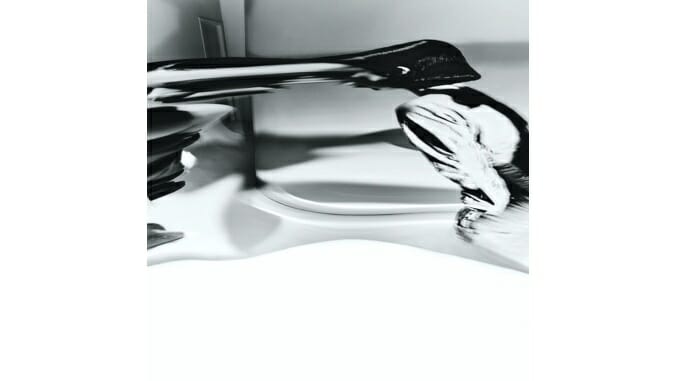Kelly Lee Owens Soothes and Disorients on LP.8

For those in the know, Welsh electronic musician Kelly Lee Owens has gained a reputation as someone who seemingly has the world of pop music in the palm of her hand. As she has proven with her first two releases—her 2017 self-titled album and 2020’s Inner Song—she is one of the few artists who come along every few years or so who have the confidence and credibility to welcome people into the avant-garde music fold with just the right of amount of crowd-pleasing accessibility. Björk had done it in the past, and FKA Twigs and Grimes picked up that torch to some degree later on. These artists all took elements of underground subcultures and delivered them with such bravado that the mainstream couldn’t help but make their way into the tent to learn more. It has seemed as though she is edging ever closer to that status, as she offered her skills in creating the anthemic soundtrack to the 2023 Women’s World Cup. With Owens’ third album LP.8, fans of her work were curious to see if she would venture further into the realms of the danceable, yet subversive pop of Inner Song, or draw us further into a world of experimentation not yet explored in the mainstream.
Like many musicians, Owens was unable to tour behind her exuberant sophomore album Inner Song after its release in 2020. Refusing to let a worldwide pandemic stifle her creativity, she decided to head to Oslo to record. There, she linked up with renowned avant-garde noise musician—and her Smalltown Supersound label-mate—Lasse Marhaug, who’s worked with esteemed peers in the field like Merzbow and Sunn O))). Looking to create music that bridged the gap between Throbbing Gristle and Enya, Marhaug was seemingly a perfect pairing for Owens. His work producing albums for the experimental-pop artist Jenny Hval used a similar palette, resulting in some of her most exciting and unpredictable work. Mixing Owens’ supernatural ability to build walls of dense hooks through fat, minimal techno tracks with Marhaug’s ear for dissonance could perhaps create a unique space for both artists.
The finished project was in fact such a departure from her first two records that Owens gave it the title LP.8 to suggest that it belonged to a different musical world entirely. With the eerie spray-paint-can rhythms and wobbly bass tones of the first track “Release,” she lulls the listener into the album with no on-ramp to prepare for the dark tension that follows. As she repeats the song’s title over and over throughout its duration, there is little hope that she will provide much “release” musically as the track flows directly into the equally caustic “Voice.”
-

-

-

-

-

-

-

-

-

-

-

-

-

-

-

-

-

-

-

-

-

-

-

-

-

-

-

-

-

-

-

-

-

-

-

-

-

-

-

-








































